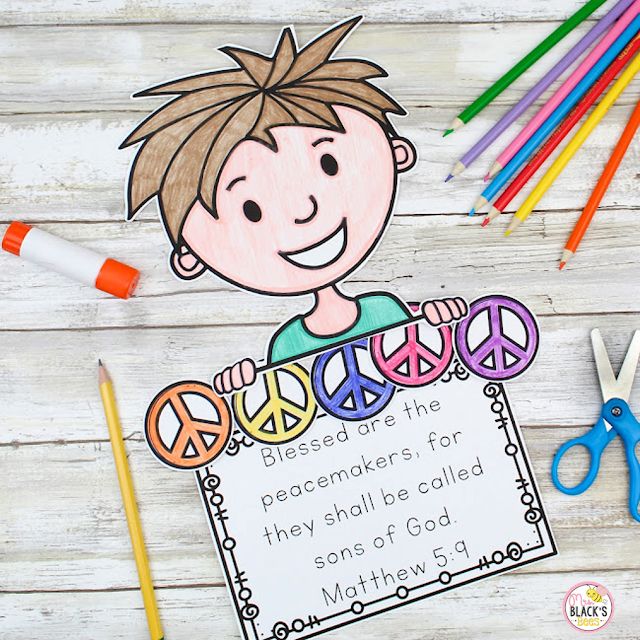In an era marked by sociopolitical upheaval and entrenched conflict, the necessity to cultivate peacemakers from a young age cannot be overstated. The Bahá’í Faith presents a profound and holistic framework for instilling values of peace, unity, and justice in the hearts and minds of boys. While traditional norms often pigeonhole masculinity, the teachings of Bahá’u’lláh encourage and beckon a new archetype—one that harmonizes strength with compassion. This exploration seeks to elucidate the principles found within Bahá’í teachings that are pivotal in molding young boys into beacons of peace in a tumultuous world.
The Essence of Masculinity and Peacemaking
The notion of masculinity has historically been entwined with notions of aggression, dominance, and stoicism. However, the Bahá’í perspective offers a radical reassessment. Boys are envisioned as messengers of peace rather than harbingers of discord. Bahá’í teachings emphasize that true strength lies not in outward force but in the ability to resolve conflicts amicably and nurture understanding. This transformative view reframes masculinity, inviting a balance between the external and internal realms—where a peacemaker can also be a steadfast protector.
The Role of Education in Fostering Openness
Education stands as the cornerstone of character development and moral elevation. In the Bahá’í view, the formative years present an exceptional opportunity to plant the seeds of virtue within boys. Engaging them in discussions and activities that accentuate empathy, respect, and perspective-taking cultivates their capacity for understanding diverse experiences. Lessons are not merely instructional but experiential, encouraging boys to empathize with every individual they encounter, be they adversaries or allies. By immersing young minds in the richness of understanding, the pathway to becoming peacemakers is laid.
Community Engagement: A Crucible for Transformation
The Bahá’í community emphasizes the importance of collective action and service. Engaging boys in community-building initiatives offers practical experiences that tether theoretical concepts of peace to tangible action. Whether through volunteering, service projects, or collaborative efforts with diverse groups, boys are given the tools to dismantle the barriers of misunderstanding and societal division. These experiences not only deepen their commitment to service but also create an environment where mutual respect flourishes. As they stand shoulder to shoulder with peers from varying backgrounds, they engage directly in the art of conversation and conflict resolution.
Mentorship: The Guiding Light
Integral to the development of young peacemakers is the presence of strong, positive role models. Mentorship is a dynamic conduit through which the teachings of compassion and unity can be imparted. Older men within the Bahá’í community are encouraged to embody virtues of humility, patience, and dialogue—demonstrating to young boys the essence of true manhood. Through regular interactions and shared experiences, mentors can facilitate crucial discussions on emotional intelligence, responsibility, and the importance of nonviolent approaches to conflict. This active engagement helps reinforce the values being taught at home and in educational settings.
Encouraging Critical Thought
In the pursuit of peace, critical thinking emerges as an indispensable faculty. Boys must be equipped not just with knowledge but the ability to question, analyze, and reflect. Exposure to diverse literature, philosophical discourses, and art that addresses themes of conflict and resolution can stimulate critical thought processes. Posing open-ended questions and fostering discussions about historical and contemporary peacemakers, including figures such as Martin Luther King Jr. and Mahatma Gandhi, invites boys to contemplate the myriad pathways to peace and justice. This intellectual engagement is vital in shaping a generation that understands the nuances involved in fostering unity.
The Role of Family in Nurturing Values
The family unit serves as the bedrock of moral and ethical development. Bahá’í teachings advocate for an uplifting atmosphere where principles of unity and compassion are not merely espoused but actively practiced. Families are encouraged to cultivate an open dialogue, where young boys are empowered to express their thoughts and feelings. Such an environment nurtures emotional well-being and resilience, equipping boys with the confidence to approach conflicts with a peaceful mindset. Parents can strategically incorporate discussions on kindness and understanding into daily interactions, drawing parallels to global issues, thereby grounding ideals in real-world contexts.
Celebrating Diversity: A Microcosm of Global Unity
In a world increasingly characterized by fragmentation, celebrating diversity is critical. The Bahá’í teachings underscore the oneness of humanity, rendering the recognition of differing cultures, religions, and perspectives both vital and enriching. As boys learn to appreciate the beauty in diversity, they become adept at bridging divides and fostering collaboration. Organizing multicultural events can facilitate this exposure, as they allow boys to interact within an inclusive framework. Through the celebration of shared human experiences, boys can dismantle prejudices, nourishing their development into empathetic peacemakers.
A Life Dedicated to Service
Ultimately, the embodiment of Bahá’í teachings culminates in a life dedicated to the service of humanity. A peacemaker is one who extends empathy and compassion beyond personal circles and towards the broader community. Boys should be encouraged to participate in initiatives that serve the vulnerable and marginalized. By engaging in altruistic narratives, they witness firsthand the impact of their actions, reinforcing their commitment to peacebuilding. This journey of service evolves into a lifelong calling, inspiring future generations to perpetuate the cycle of compassion and understanding.
In every lesson taught, every community initiative undertaken, and every interpersonal interaction cultivated, the Bahá’í approach to raising boys as peacemakers resonates with deep significance. It is a clarion call to action, pointing towards a future shaped by compassionate leaders who view peace not simply as an abstract ideal but as a tangible reality within arm’s reach. It is a journey of growth and transformation that invites every Bahá’í to play their part in nurturing a world where harmony prevails over discord.
